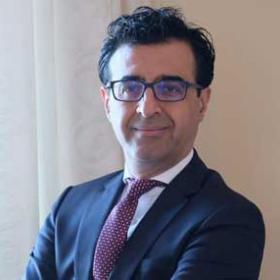
Post-ISIS Iraq: Defeating Terrorism Through Real Reforms
U.S. President-elect Donald Trump will likely have little time to celebrate his inauguration. The President will inherit a world with numerous foreign policy challenges. High on the list remains defeating terrorism and realizing a stable post-ISIS Iraq.
During the election campaign, then presidential candidate Trump stated emphatically that he will defeat ISIS by "bombing the hell out of them." This traditional security focused strategy will simply not work. On the contrary, it will prove counter-productive, giving ISIS and al Qaeda a new lease of life and providing the perfect context for further radicalization of a disgruntled Sunni community in Iraq and beyond.
The military campaigns against ISIS are making some tangible progress. The terrorist group is losing territories in Iraq, Syria and Libya. Yet this is neither the military end nor the political and ideological defeat of ISIS. This apocalyptical and genocidal menace is a consequence and not a cause of the current catastrophe in Iraq and Middle East. The root causes that led to its emergence are:
- Sectarian, political and economic exclusion and marginalization of Sunnis by the post-Saddam political order;
- Systemic corruption, lack of good governance, rule of law, transparency and accountability;
- Saddam Hussein’s despotism and horrible human rights violations that created the natural and perfect habitat for ISIS’s genocidal mindset and strategy;
- Intolerant and exclusivist educational curriculum pre- and post-2003;
- Political and military miscalculations and overreach by the U.S.; and
- Geopolitical jockeying by regional and international powers for influence.
The only way to defeat ISIS entirely is by addressing these root causes in a comprehensive manner. On a macro and conceptual level this begins with a thorough understanding of the factors that lead to radicalization. On a policy level, there is a need for developing the right strategy that should support true and real reforms in Iraq. To be fair to the new U.S. administration, it is the responsibility of Iraqi authorities, especially the ruling Shia majority, to build a truly inclusive state in which Sunnis, Kurds and other communities feel as equal citizens with equal rights. But President-elect Trump can play a crucial role in this process given the political and military leverage of the U.S. in Iraq. While already endorsing a wider approach, Trump’s strategy for Iraq should take into consideration the following components:
- Realization that a traditional and exclusive security approach will not fully tackle, but rather aggravate root causes of the conflict; ideally an approach that combines military, political and development aspects is required ;
- U.S. should take the lead and cooperate with the EU, UN and other actors in mediating between Iraqis and initiating short-, mid- and long-term political, military and economic measures. The objective is to encourage Iraqi leaders to find common ground and reach painful but vital, historic and much-needed mutual compromises on existential topics, including the form of state governance, power sharing, fair redistribution of wealth and resources, and resolving conflicts over disputed territories; and
- Establishment of a long-term international fund for recovery and reconstruction of post-ISIS Iraq.
However, this recommended support strategy should be conditional. It has to be based on basic democratic principles, namely: true power sharing, peaceful transfer of power when office terms come to an end, implementation of real reforms, rule of law, human rights and addressing human rights violations, transparency and accountability.
Without such a long term strategy, the new Iraq will be the old Iraq, and ISIS will be back, probably even with more brutality and vengeance. The consequences for Iraq, U.S. and the rest of the world will be destructive and far-reaching.
Kawa Hassan is EWI’s Director of the Middle East & North Africa Program and a member of Atlantic Council’s Task Force on the Future of Iraq, which is making policy recommendations for the Trump administration on how to deal with the Iraq conflict.
Photo: "010720-F-8217W-002" (CC BY-NC-ND 2.0) by U.S. Army Korea (Historical Image Archive)

